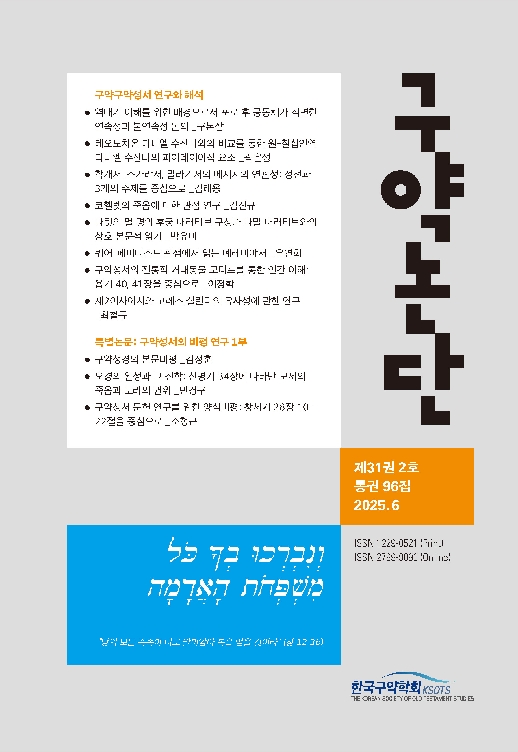이 논문에서는 열 명의 후궁 이야기를 하나의 내러티브로 묶고 이들을 인물화였고 이를 통해 이들의 모습에 주목할 수 있었다. 이들의 이야기를 하나의 내러티브로 묶는 과정을 통해 이들이 어떻게 다윗과 압살롬에게 이용당하고 버려졌는지 그 과정을 잘 보여줄 수 있었다. 그리고 인물화를 통해 열 명의 후궁이 철저히 수단으로 이용당하였고 불명예와 손해를 회복하지 못하고 그대로 다윗에게 갇히고 버려진 비인간화된 존재로 남겨지게 되었다는 것을 드러내었다. 그리고 미갈과 다말 이야기와의 상호본문적 읽기를 통해 다윗이 여성을 수단화하고 격리하고 비인간화하는 모습이 그의 특징 중의 하나라는 것을 드러내었다. 다윗은 여성 인물과의 관계에서 여성을 이용하고 버리는 것에 문제 의식을 느끼지 않는 남성 중심적이고 가부장적인 사고방식을 가지고 있다는 것을 분명하게 보여준다. 화자가 비극적인 여성들의 모습을 언급한 것은 이들을 이렇게 만든 다윗에게 심각한 잘못이 있다는 것을 드러내기 위해서이다. 그러므로 열 명의 후궁 이야기는 다윗의 잘못에 대한 나단의 심판 예언의 성취이며 하나님은 말씀하신 심판을 반드시 성취하신다는 것으로 해석하고 넘어가서는 안되는 본문이라는 것을 보여주었다. 오히려 다윗으로 인해 피해받은 여성들에 대한 무관심과 부당한 대우는 다윗이 하나님의 공의와 사랑을 잃어버린 인물이 되었다는 것을 보여준다. 또한 이런 비판을 통해 화자는 하나님의 관심이 약자와 주변인을 향한 공의와 사랑에 있음을 암시하며 이것이 우리가 여성과 약자의 관점으로 성경을 해석할 근거가 된다고 생각한다.
This paper binds together the stories of David's ten concubines into a single narrative, employing characterization to draw attention to their plight. By weaving their stories together, the study effectively demonstrates how these women were exploited and abandoned by both David and Absalom. Furthermore, through this characterization, it is revealed that the ten concubines were utterly instrumentalized, left as dehumanized beings, confined and discarded by David, never recovering from their dishonor and loss. Through an intertextual reading with the narratives of Michal and Tamar, this study exposes that David's instrumentalization, isolation, and dehumanization of women is a defining characteristic of his persona. It clearly shows David's androcentric and patriarchal mindset, indicating that he feels no compunction in using and discarding women in his relationships with them. The narrator's portrayal of these tragic female figures serves to highlight David's grave wrongdoing in creating their circumstances. Therefore, the story of the ten concubines should not be dismissed merely as the fulfillment of Nathan's prophecy of judgment against David, signifying God's unwavering commitment to His word. Instead, the indifference and unjust treatment of these women, who suffered at David's hands, reveal that David had lost sight of God's justice and love. Moreover, through this critique, the narrator implies that God's concern lies with justice and love for the weak and marginalized, providing a basis for interpreting scripture from the perspective of women and the vulnerable.







